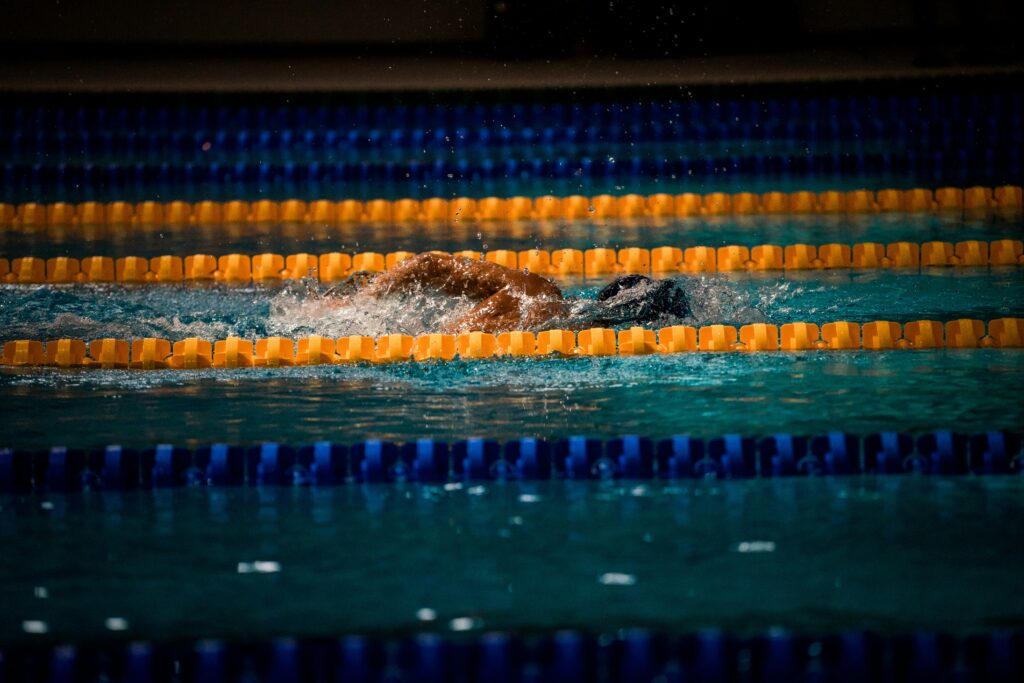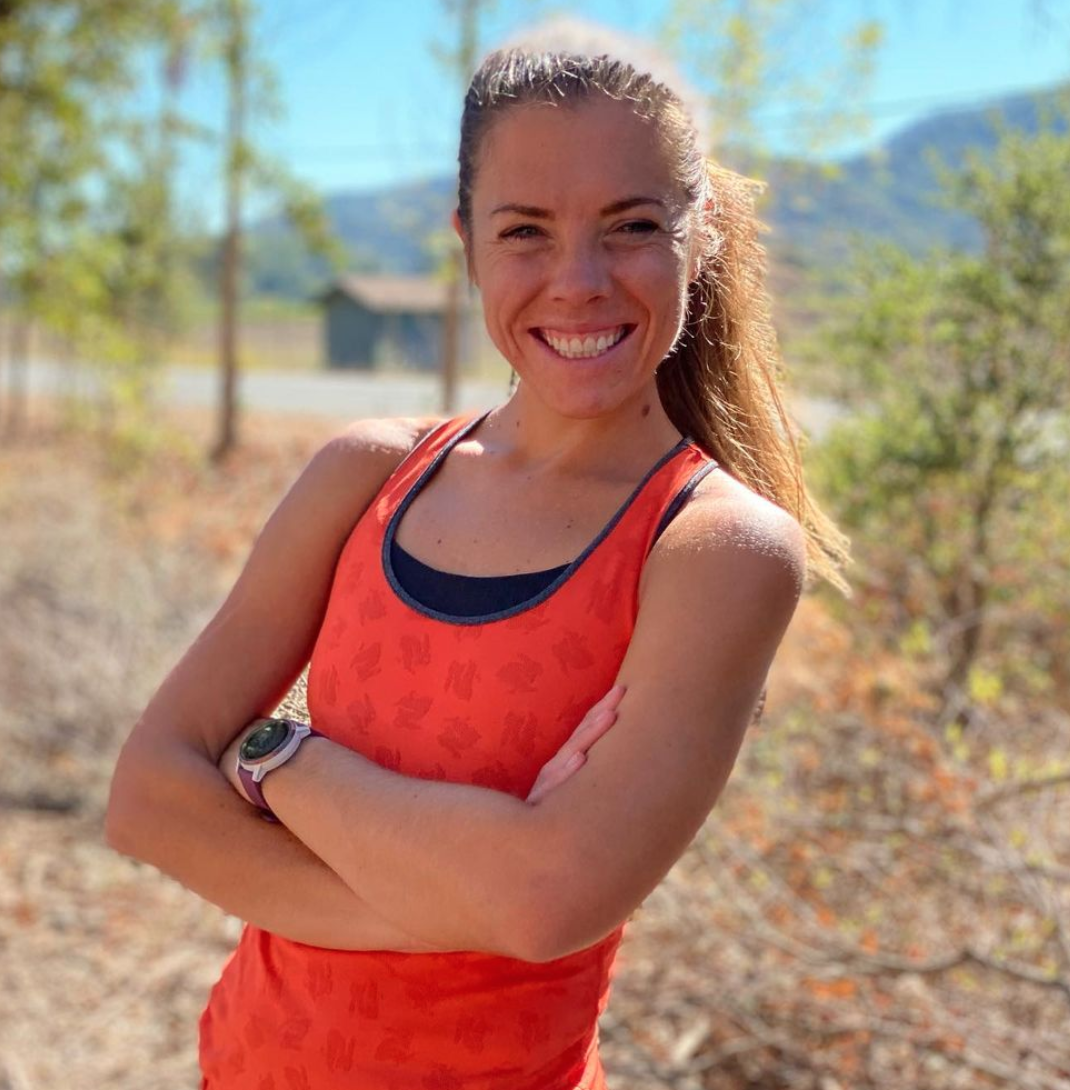Swimming as Structure, Strength, Identity

For Alex, swimming started as a way for a kid with too much energy to stay busy and became a habit that stuck. Through college, it offered structure and a circle of teammates who became lifelong friends. The military brought its own version of structure, but swimming stayed constant. No matter the base or schedule, there was always water somewhere, and the pool became more than a workout. It is a place to reset, to measure progress in small ways, and to feel at home even in environments that weren’t always easy.
How did swimming start for you?
I learned to swim at a community pool and joined the local age-group team because my parents wanted me to burn energy. I wasn’t the kid winning every race. I was the kid talking to my friends between sets, but I liked that if I showed up and did the work, I could see progress. By high school, my events were mid-distance freestyle. In college, I walked on to a mid-sized program and competed. Nothing flashy, but it gave me confidence and lifelong friends.
Where did the military come in?
I wanted a career that felt useful and team-based. After college I had two options in front of me, and the military made sense. The structure, the training pipeline, the chance to work in a unit matched what I wanted in a career. Another piece was knowing I could keep swimming. Pools exist on most bases, and when they don’t, there’s always water nearby or a gym to stay fit. Having that outlet was part of why I chose to serve.
Did you come out before or after joining?
Mostly before. My college team knew, but a lot of people outside our team didn’t. I wasn’t hiding but I also wasn’t openly sharing. When friends asked if I was dating, I said yeah but never made an attempt to say it was people of the same sex and never corrected people who assumed. I am lucky…my circle handled it with no drama. Just life moving forward.
Has swimming helped you navigate that?
Yes. The pool is a neutral space. No one cares about labels when you’re gasping on the fourth 100. You’re just another swimmer trying to hit the interval. When I graduated and joined the military, I also joined local masters teams. You show up, share a lane, and over time, those people become friends. That routine helped me feel settled wherever I went.
What does training look like with an active duty schedule?
It’s week by week. On a good week I’ll get in four swims and two strength sessions. On a busy week, I aim for three swims and some quick mobility or band work. Early mornings usually work best. If the pool isn’t available, I make do with cords, pull-ups, or short runs. It’s not perfect, but the key is keeping the habit. Prioritizing sleep makes it possible for me. Some days I’m in the pool at 4 am. Consistency beats a flawless plan.
ADVERTISEMENT
.png)
Favorite set right now?
Three rounds of six 100s freestyle with 15 seconds rest. Descend each round. Pull on the middle one. It’s tough but efficient. I can get it done in 45 minutes.
What has felt good and what has felt hard about being gay in uniform?
The good is simple: teammates who care about your performance and character, leaders who make respect non-negotiable, and friends who include your partner like it’s normal because it is. In the military, there are a lot of spouse events and I always hope my unit will include my partner. That’s all I want: to bring the same parts of my life to the table that others bring.
The hard part comes in new environments. You listen for throwaway comments, you wait to see if people are safe. I usually wait to share this piece of me until I am familiar with my new colleagues and the unit climate. Most places have been fine, but a few took longer. I’m also cautious about what I share online. Privacy and security matter.
What advice would you give a younger gay service member who loves sport?
Find one steady thing you can control. For me, that’s swimming. Treat it like an appointment. If you’ve only got 30 minutes, do 30 minutes. Heck, I’ve jumped in the pool for 15 minutes before because I just crave that peace.
Don’t measure yourself against people with wide-open schedules. Protect your sleep, eat real food, and keep one friend you can text when you need perspective.
What about advice for leaders who want to be supportive?
Make space without making it a spectacle. Don’t pry. Don’t make jokes. Invite everyone’s partners to events the same way. Call things out if they don’t align with the standard you expect. Respect isn’t about grand gestures…it’s about consistent small actions.
Have sport and service ever clashed?
Yes. Deployments and exercises always come first. When I’m deployed, I might not swim at all. That’s part of the deal. I set different goals then, like a pull-up PR or 50 push-ups unbroken. Those keep me motivated. When I return, I rebuild with technique and shorter aerobic work before ramping back up. Swimming is important, but it’s not everything.
How has your relationship with swimming changed since joining?
In college, success was black and white: a PR or a failure. I was strict with myself. Now, swimming is more flexible. I still like racing and do masters meets, but my measure of success is different. If a swim helps me handle stress and stay fit for my job, it’s a win. I don’t let a number decide the week anymore.
How do you deal with comments or assumptions?
Directly. If someone crosses a line, I say so. If they’re curious and respectful, I’ll answer. If they push, I disengage. I’m not here to represent everyone, just myself.
What does support from your partner look like?
We plan around duty days, pool hours, and life. My partner also swims, so sometimes we train together. Not always because our schedules don’t line up perfectly. But we communicate, split chores, and show up when it matters. That support makes everything else manageable.
What goals are on your list this year?
Breaking two minutes again in the 200 free. Completing a 3K open water swim without being fished out and holding a consistent three-to-four day swim routine during a heavy work weeks.
Conclusion:
Swimming has just become part of life. It isn’t about chasing big goals or making a statement…it’s a place to feel steady in a job and lifestyle that changes often. The pool is familiar when everything else is new. Some weeks it’s four swims, some weeks it’s one quick dip before work, but it’s always there. That’s what matters: not a perfect plan or flawless training block, just having something that feels like your own. For Alex, that’s enough.
ADVERTISEMENT

Hollie is a runner, hiker, swimmer, residing in California. She has worked in run specialty for nearly 8 years and has fit hundreds of people for shoes. Outside of the running world, she enjoys the general aviation world, her two cats, and spending time with her spouse.




